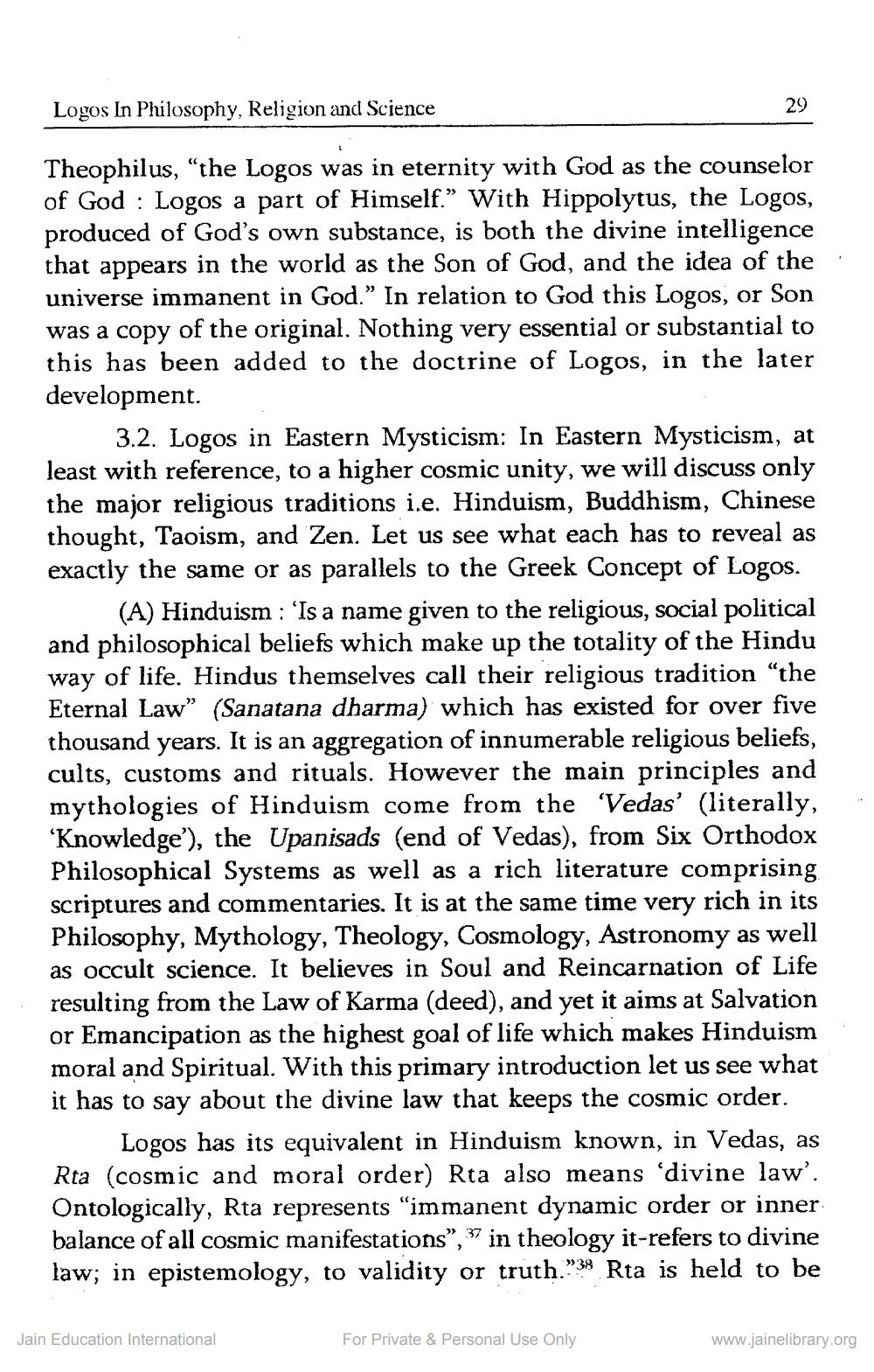________________
Logos In Philosophy, Religion and Science
Theophilus, “the Logos was in eternity with God as the counselor of God : Logos a part of Himself.” With Hippolytus, the Logos, produced of God's own substance, is both the divine intelligence that appears in the world as the Son of God, and the idea of the universe immanent in God." In relation to God this Logos, or Son was a copy of the original. Nothing very essential or substantial to this has been added to the doctrine of Logos, in the later development.
3.2. Logos in Eastern Mysticism: In Eastern Mysticism, at least with reference, to a higher cosmic unity, we will discuss only the major religious traditions i.e. Hinduism, Buddhism, Chinese thought, Taoism, and Zen. Let us see what each has to reveal as exactly the same or as parallels to the Greek Concept of Logos.
(A) Hinduism : 'Is a name given to the religious, social political and philosophical beliefs which make up the totality of the Hindu way of life. Hindus themselves call their religious tradition “the Eternal Law” (Sanatana dharma) which has existed for over five thousand years. It is an aggregation of innumerable religious beliefs, cults, customs and rituals. However the main principles and mythologies of Hinduism come from the 'Vedas' (literally, Knowledge'), the Upanisads (end of Vedas), from Six Orthodox Philosophical Systems as well as a rich literature comprising scriptures and commentaries. It is at the same time very rich in its Philosophy, Mythology, Theology, Cosmology, Astronomy as well as occult science. It believes in Soul and Reincarnation of Life resulting from the Law of Karma (deed), and yet it aims at Salvation or Emancipation as the highest goal of life which makes Hinduism moral and Spiritual. With this primary introduction let us see what it has to say about the divine law that keeps the cosmic order.
Logos has its equivalent in Hinduism known, in Vedas, as Rta (cosmic and moral order) Rta also means 'divine law'. Ontologically, Rta represents "immanent dynamic order or inner balance of all cosmic manifestations”, 37 in theology it-refers to divine law; in epistemology, to validity or truth.938 Rta is held to be
Jain Education International
For Private & Personal Use Only
www.jainelibrary.org




